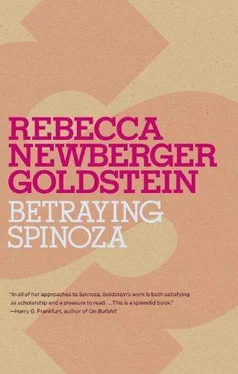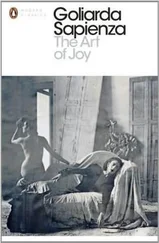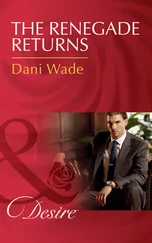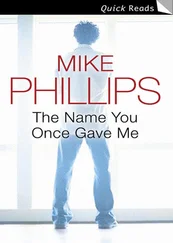Rebecca Goldstein - Betraying Spinoza - The Renegade Jew Who Gave Us Modernity
Здесь есть возможность читать онлайн «Rebecca Goldstein - Betraying Spinoza - The Renegade Jew Who Gave Us Modernity» весь текст электронной книги совершенно бесплатно (целиком полную версию без сокращений). В некоторых случаях можно слушать аудио, скачать через торрент в формате fb2 и присутствует краткое содержание. Год выпуска: 2009, ISBN: 2009, Издательство: Random House, Inc., Жанр: Биографии и Мемуары, на английском языке. Описание произведения, (предисловие) а так же отзывы посетителей доступны на портале библиотеки ЛибКат.
- Название:Betraying Spinoza: The Renegade Jew Who Gave Us Modernity
- Автор:
- Издательство:Random House, Inc.
- Жанр:
- Год:2009
- ISBN:978-0-80524273-7
- Рейтинг книги:5 / 5. Голосов: 1
-
Избранное:Добавить в избранное
- Отзывы:
-
Ваша оценка:
- 100
- 1
- 2
- 3
- 4
- 5
Betraying Spinoza: The Renegade Jew Who Gave Us Modernity: краткое содержание, описание и аннотация
Предлагаем к чтению аннотацию, описание, краткое содержание или предисловие (зависит от того, что написал сам автор книги «Betraying Spinoza: The Renegade Jew Who Gave Us Modernity»). Если вы не нашли необходимую информацию о книге — напишите в комментариях, мы постараемся отыскать её.
Betraying Spinoza: The Renegade Jew Who Gave Us Modernity — читать онлайн бесплатно полную книгу (весь текст) целиком
Ниже представлен текст книги, разбитый по страницам. Система сохранения места последней прочитанной страницы, позволяет с удобством читать онлайн бесплатно книгу «Betraying Spinoza: The Renegade Jew Who Gave Us Modernity», без необходимости каждый раз заново искать на чём Вы остановились. Поставьте закладку, и сможете в любой момент перейти на страницу, на которой закончили чтение.
Интервал:
Закладка:
The public school teachers brought, at least for me, the sweet breath of real knowledge into the classroom, even though I knew they had to censor themselves. I had caught the look of discomfort on my tenth-grade biology teacher’s face, listening to our rabbi-principal explain to us that, because of the New York State Regents exam, we were going to have to study an untrue theory fabricated by Charles Darwin, but that we should not forget for a single moment that it was scientifically unproven and, more important, contradicted by Torah.
Studying the Jews of modern Europe seemed to carry the subject of historia a thrilling distance away from the religious sphere and closer to the domain of credible secular fact. With relief, I felt that I could put aside my spiky doubts in Mrs. Schoenfeld’s class, reassured by her intelligent accent and syntax. And because of the complexity of the material that year, we were being taught historia in English, again reassuring me of its proximity to trustworthy temporality.
It would be some while into the school year before I would hear tell of the apikorus , or heretic, Spinoza. Spinoza’s introduction into our classroom awaited the discussion of the touchy subject of the Haskalah, or Jewish enlightenment. Only, in our classroom it wasn’t called by the approbatory term Haskalah. We called it “modernity,” pronouncing it with a Hebrew accent.
The pivotal figure in modernity was the late-eighteenth-century thinker Moses Mendelssohn, grandfather of the famous composer, both of whom were also mentioned as part of the extended cautionary tale. Moses Mendelssohn had urged that Jews not keep themselves intellectually and culturally separate. He had argued that adherence to the Torah, to which he held firm — he was not an apikorus , girls — did not exclude participation in the arts and sciences. He had urged that Jews educate themselves in the accomplishments of Western civilization. So had argued the grandfather. And the grandson, Felix, was a great musician. His compositions are still played by famous orchestras all over the world. But, girls, he was also a convert to Christianity. The descendents of this illustrious family probably don’t even remember that they were once Jewish. They probably don’t know the first thing about the Yiddishkeit of their ancestors.
Mrs. Schoenfeld’s expressions, both on her face and in her voice, made the articulation of the moral of the Mendelssohn story gratuitous: admiration leads to accommodation, which leads to assimilation, which leads to the worst. The so-called Haskalah had wanted to mix the immiscible: the insular Torah Jew into the modern world, the modern world into the Torah Jew. We were in favor of insularity, and Mrs. Schoenfeld was no exception, despite her fancy way around English syntax. I still unconsciously think of the word “modernity” as being a Hebrew word, hearing it pronounced with its r rolled and with a tone of stern admonition.
Spinoza predated Moses Mendelssohn by a good century and a half, but Mrs. Schoenfeld spoke of him as a precursor. He was, she very rightly suggested, the first modern Jew. Spinoza headed the long line of yeshiva boys who were not as pious as they might have been. He was one of the so-called enlightened Jews, a so-called maskil , long before the term had been introduced. (I remember a student in the class once mistakenly saying masik —which means “a little devil,” often used affectionately for children — for maskil , an error which propelled sober Mrs. Schoenfeld to the very verge of laughter.) This Benedictus-né-Baruch was an early sign of the sickness to come, and his own community had tried to keep the contagion from spreading. That is why they took the drastic step of putting him into kherem , girls, excommunicating him when he was only twenty-three years old. Had Moses Mendelssohn studied the case of Spinoza a little better, he might have saved himself, his family, and the Jewish people a lot of tzurris . 3
Mrs. Schoenfeld suggested that a lot could be learned from understanding the case of Spinoza, as opposed to the philosophy of Spinoza. About the latter she said very little; only that he had had two basic beliefs: The first was that the Torah was not a divine revelation but rather written by man — written in fact by several men who came much later than Moshe Rabbenu, Moses Our Teacher. And the second was that God was identical with nature.
Mrs. Schoenfeld used the English word “God,” which was not a word we normally used. Instead we said Ha-Shem , Hebrew for “The Name,” a designation that at once circumvents and underscores the prohibition against uttering God’s true and awful name. If His true name were transcribed, then the paper on which it was written would be too holy to be thrown away. It would have to be buried like a human corpse. Even the English word radiated sanctity, which is why we were taught to write “G — d.”
As brief as it was, Mrs. Schoenfeld’s synopsis of Spinoza’s philosophy intrigued me, by reason of its very incomprehensibility, so that I couldn’t stop thinking about it. First of all, if Spinoza thought that God was identical with nature, then of course he didn’t think the Torah was revealed by God. The denial of divine authorship seemed barely worth mentioning, once one had made the astounding claim that God and nature were one.
But what did the man mean by this inscrutable identification?
Did he mean that nature had hidden mystical qualities, that it was imbued with nefesh , with spirit, the very spirit of God? Did he think that nature was a great deal more than what we normally think of it as being?
Or was Spinoza saying that nature is only nature — that it was all those things that the Torah taught were created on the first five days (light and dry land and the heavenly bodies and plants and animals) — and was his assertion that God is nature just a sneaky way of denying the existence of God?
I rarely posed questions in class, preferring to try to think things out for myself, but I was intrigued and confused enough to ask Mrs. Schoenfeld to explain more about what Spinoza had meant by saying that Ha-Shem was nature. Ironically, given how happy I was that historia was being taught in English, I had used, out of habit, the Hebrew designation for the Unutterable.
Mrs. Schoenfeld’s response came mainly in the form of rebuking me for saying Ha-Shem . She had deliberately said “God” and not “ Ha-Shem ” because whatever Spinoza meant by the word, it certainly wasn’t Ha-Shem. Berayshis barah Elokim es ha-shemayim vi’es ha-eretz —In the beginning the Lord created the heavens and the earth. This is the first sentence of the Torah, and if someone doesn’t know this about Ha-Shem , he doesn’t know the first thing about Ha-Shem. Elokim —the Lord. Ha-Shem is the Lord over all He creates. He chose to create nature. He chose that it should be and what it should be. If someone says that God is nature — is the heavens and the earth — then he is not talking about Ha-Shem .
Then Spinoza was an atheist?
Yes, she answered me, an atheist. Why do you look so baffled by that? Do you still have a question, Rebecca?
I did, and since she was pushing me, I asked it: Why did he take such a roundabout way just to say that God doesn’t exist? It sounds like he was trying to say something more by saying that God is nature.
No, Mrs. Schoenfeld answered me, and so assertively that I thought to ask her if she herself had read the works of the heretic. Of course, I didn’t pose the question that rose to my lips, since it could have been heard as disrespectful of her, a veiled challenge, and derekh eretz —literally, “the way of the land,” a phrase meaning “respect for parents and teachers”— was a virtue drilled into us from an early age.
Читать дальшеИнтервал:
Закладка:
Похожие книги на «Betraying Spinoza: The Renegade Jew Who Gave Us Modernity»
Представляем Вашему вниманию похожие книги на «Betraying Spinoza: The Renegade Jew Who Gave Us Modernity» списком для выбора. Мы отобрали схожую по названию и смыслу литературу в надежде предоставить читателям больше вариантов отыскать новые, интересные, ещё непрочитанные произведения.
Обсуждение, отзывы о книге «Betraying Spinoza: The Renegade Jew Who Gave Us Modernity» и просто собственные мнения читателей. Оставьте ваши комментарии, напишите, что Вы думаете о произведении, его смысле или главных героях. Укажите что конкретно понравилось, а что нет, и почему Вы так считаете.












